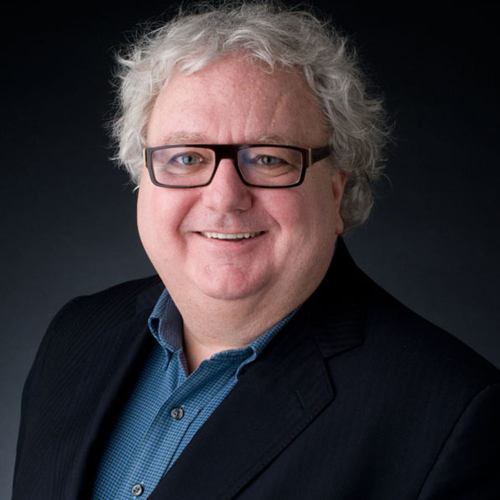Bernard Lapointe, MD and Justin Sanders, MD, MSc are the Co-Chairs for the McGill International Palliative Care Congress ,October 18-21,2022.
Devon Phillips (DP): I believe you have a long and rich history with McGill International Palliative Care Congress starting in the 1990’s as a presenter, then as a member of the Executive Planning Committee for many years, serving as the Chair in 2016 and 2018, and now as Co-Chair with Justin Sanders for 2022. You must know the congress inside out from all these different perspectives. What has the experience been like?
Dr Bernard Lapointe (BL): First of all, it’s a great Congress and it’s a great experience. In life we need to be creative and you can be creative with your team in developing new approaches to care and research and so on. But there is another side to creativity- what Bal Mount and his team started with Ina Cummings, Johanne de Montigny, Jacques Voyer and others, was a very unusual congress format in the sense that most Congresses in medicine are basically clinical-science driven, with very little involvement with the arts, philosophy, the humanities and the volunteers. But from the outset the International Congress at McGill has been a crux where all of these are mixing. This gives the Congress a special flair. And truly, some people have tried to achieve this but I still believe we’re doing this very well as the Congress is recognized worldwide for its unique approach. You have the best clinicians in the world in palliative care, the best researchers in the world in palliative care, but beyond that, we have representatives from the arts and humanities: authors, artists, philosophers, and so forth. For example, in 2016, Kent Nagano talked about the role of music in our lives and the importance of music in the provision of palliative care.
It’s also important to know that this congress is the result of a collaborative effort: from the international and national organizations that support us, they’re all there, to the collaborations with multiple universities, departments and colleagues. It’s very inclusive, and that’s the richness. For example, Pallium Canada will discuss their ECHO program (Extension for Community Healthcare Outcomes), CPAC (Canadian Partnership Against Cancer) will discuss Aboriginal access and development of care by Aboriginal and First Nations communities. CHPCA (Canadian Hospice Palliative Care Association) will present on advance care planning, which is so important and we saw this during the pandemic. And the Canadian Society of Palliative Care Physicians will address care for non-cancer patients, the frail elderly. The beauty is that we’re able to host this congress and to develop a program that is not only inclusive but exciting.
So our congresses address the whole package. It’s not like a patchwork where you just plug items in. We’ve always had a narrative for each of the congresses.
DP: Tell me more about the concept of the congress narrative and how this informs the 2022 Congress.
BL: From the previous Chairs, Bal Mount and Anna Towers, I learned to develop a narrative so the congress is cohesive. This means that the major themes and parts of the Congress including all the plenaries have a narrative. This year our narrative addresses what we’ve been going through with COVID and the impact on the care we give and the impact on us as caregivers. The last few years have forced us to look again at what we do and how we present ourselves. For example, our second plenary with Ira Byock, Samantha Winemaker and Hsien Seow addresses the message we want to provide our colleagues and neighbours on what we do in palliative care. Why? Because we hear people asking for end-of-life care but they have difficulty understanding what this care is.
COVID has affected some groups deeply and certainly Africa is an example. In the third plenary, physician Christian Nzitmira from Rwanda will talk about the impact on Africa, something we truly do not hear a lot about.
One of the things about COVID is that we all realize how deeply tired we are. And I think we tend to shame fatigue. But there is good fatigue and bad fatigue. French philosopher Eric Fiat recently wrote a book called L’Ode à la fatigue, and it’s celebrating fatigue, the good fatigue. These ideas are helping us to transform our thoughts on fatigue.
 And we need to look forward. I see this as I leave the Chairmanship of the Congress. I will be passing the baton to next generation of leaders. A lot of the older leaders of palliative care are now looking to an entirely new generation of leaders, thinkers and researchers. And the three speakers in the last plenary, Anna Collins, Cory Labreque and Lucas Morin will be illustrating the way forward including the questions we can expect to confront in the coming years
And we need to look forward. I see this as I leave the Chairmanship of the Congress. I will be passing the baton to next generation of leaders. A lot of the older leaders of palliative care are now looking to an entirely new generation of leaders, thinkers and researchers. And the three speakers in the last plenary, Anna Collins, Cory Labreque and Lucas Morin will be illustrating the way forward including the questions we can expect to confront in the coming years
And there are other parts of the narrative. In the background, you have the compassionate community movement and how to develop care in the communities by the communities, and how to reach the disenfranchised, such as people living on the streets. In this year’s Congress, we are giving a lot of attention to First Nations communities and what they’ve been achieving through the palliative care programs they have developed for their communities, and this is very novel.
We are also providing a lot of attention to non-cancer illnesses this year with our Clinical Master Class. And we are addressing important issues for all the disciplines: social work, nursing, pharmacology, for example. And there are sessions on research, hard data, and research methodology. It’s important that the field develops as a clinical field as well and as a very fertile terrain for research and development and innovation. This is my vision for the Congress.
DP: It’s an amazing vision. It seems that the Congress this year is especially important as we come out of the worst of COVID. What role does the Congress play for the palliative care community at this particular time?
BL: Palliative care physicians, nurses, caregivers, volunteers, everyone, have been deeply affected by the COVID epidemic. From day one, the distancing was hard. Volunteers were not allowed to visit, and it was difficult to allow families to be present with their loved ones. We were at risk. It took time before the vaccine was available and all the appropriate measures were in place. So a lot of our colleagues were hit, deeply hit. As the epidemic progressed, we started to see people burning out, not only physically, but burning out in terms of their capacity to care and tolerate others. We had to implement directives and precautions that were not always understood. In the hospital it was like being on the road - people driving crazy with very short fuses.
So now we need to heal and the best way to heal is to regroup and to meet with colleagues. That’s very important because we didn’t choose palliative care for distant virtual meetings, or virtual support. We have had to tolerate social distancing in the last few years but truly, our need at this point, even if everyone is wearing masks, is to be together and to have that group feeling.
And we need to be inspired. There’s more to our Congress than knowledge gathering. I think it’s a question of inspiration and healing. And that’s why there will be moments for healing and moments for inspiration. Because that’s the other part: we always bring art and music within the Congress program.
DP: What can we expect from the arts program this year?
BL: This year we have a new signature. One of the trademarks of the Congress has been always the Reflection at the beginning of each plenary. Elle Flanders is working very hard at these but with a novel approach with photographers and cinematographers. We will have an exhibit by a world-famous Canadian photographer, Ed Burytnsky, on grief and loss. Then there will be music at various moments including at our memorial service. There will also be an ongoing creation by an indigenous artist Nyle Johnston telling stories of his people, talking about their culture, as well as what they experienced during the pandemic. We are screening a play written by a Québec palliative care physician, Andréanne Côté, and holding a storytelling session led by Dr Richard Leiter from the Dana-Farber Cancer Institute. We are also very proud to include contemporary artist Spring Hurlburt and photographer April Hickox. Art occupies an important place in our Congress.
 DP: This is an exciting program for sure, especially given the impact and challenges of COVID. I understand that this is the first time the congress will have a hybrid component to meet the needs of some people who may have difficulty travelling.
DP: This is an exciting program for sure, especially given the impact and challenges of COVID. I understand that this is the first time the congress will have a hybrid component to meet the needs of some people who may have difficulty travelling.
BL: This is a transition Congress. It cannot be business as usual because of COVID. We are supporting people who cannot travel by providing virtual access at a very reasonable cost. This virtual access allows people who live in distant countries, or those who are afraid to travel, to participate. That’s very important.
DP: I understand the participation to date has been very positive – that there have been a high number of abstract submissions to build a quality program. This is very exciting and very encouraging.
BL: One of the things I like in my role is that I read everything, including all the abstracts. I participate in decision-making on all the sessions. I don’t tell people what to do but I bring ideas and help as much as possible. I don’t see myself so much as the leader but as a facilitator. I try to have people talk to one another and work together to create excellent content. That’s important. I’m very impressed with the quality of the abstracts we have received. We are maximizing the time we have.
DP: Sounds like an excellent programme. Last word to you: why is it a good idea to attend the McGill International Palliative Care Congress?
BL: Our field is a growing field. It’s developing and it’s learning from its mistakes and its great achievements. So in a sense, we need a platform where we can share and learn from one another, celebrate our successes, and certainly look realistically at the challenge we’re facing. And the field is changing. This Congress has always been a non-confrontational event and doesn’t have a confrontational approach to hard questions such as medical aid in dying. This is important to me. I might have my own ideas but my ideas don’t count. It’s the field that counts. We try to be as respectful and as open to new ideas, new approaches, as possible. And open to the critics. There are groups that are claiming that palliative care is not doing what it should do and not reaching out to the people that it should reach out to. And we’re learning from that. And we’re trying to develop new ways to care and new approaches to care. So whether you can attend remotely or in person, this is a unique opportunity.
And particularly after COVID, it’s like having crossed the Atlantic on a boat after the storm. You’re tired. And you know that the world is ongoing and you need to play a role in it and you need to support yourself and support the people you work with and collaborate with. And learn again. It’s a learning how-to, but it’s also a learning on how to do. We can read, we can watch videos, but there’s nothing like the experience of sharing with other colleagues who do the same things and who have the same belief that the end of life is worth living and that we can provide a lot during those last days and last minutes of life.
This interview has been edited for length and clarity.


